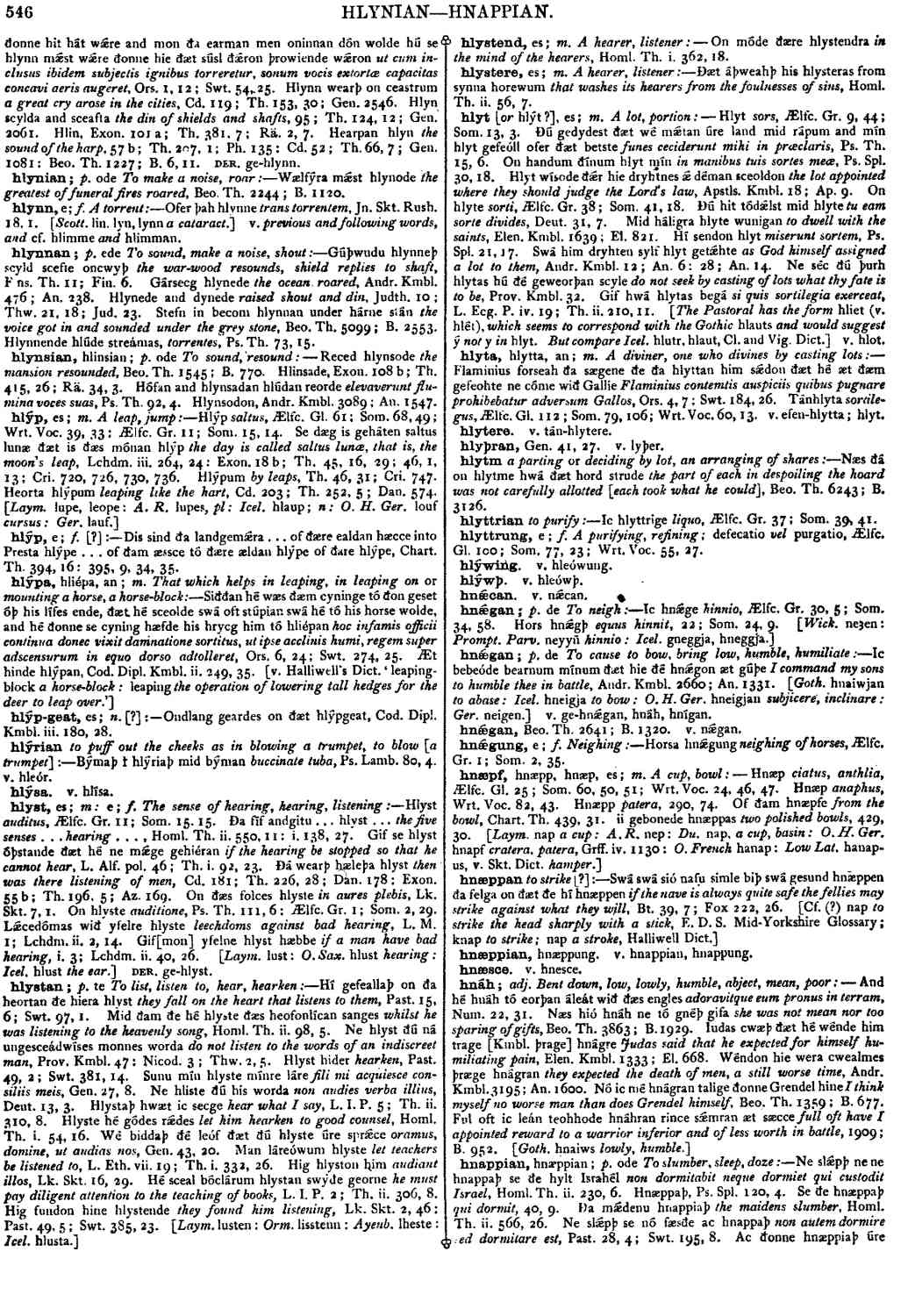hnáh
- adjective
-
And hé hnáh tó eorþan áleát wið ðæs engles
adoravitque eum pronus in terram,
- Num. 22, 31.
-
Næs hió hnáh ne tó gnéþ gifa
she was not mean nor too sparing of gifts,
- Beo. Th. 3863; B. 1929.
-
Iudas cwæþ ðæt hé wénde him trage [Kmbl. þrage] hnágre
Judas said that he expected for himself humiliating pain,
- Elen. Kmbl. 1333; El. 668.
-
Wéndon hie wera cwealmes þræge hnágran
they expected the death of men, a still worse time,
- Andr. Kmbl. 3195; An. 1600.
-
Nó ic me hnágran talige ðonne Grendel hine
I think myself no worse man than does Grendel himself,
- Beo. Th. 1359; B. 677.
-
Ful oft ic leán teohhode hnáhran rince sǽmran æt sæcce
full oft have I appointed reward to a warrior inferior and of less worth in battle,
- 1909; B. 952.
Bosworth, Joseph. “hnáh.” In An Anglo-Saxon Dictionary Online, edited by Thomas Northcote Toller, Christ Sean, and Ondřej Tichy. Prague: Faculty of Arts, Charles University, 2014. https://bosworthtoller.com/19354.
Checked: 0